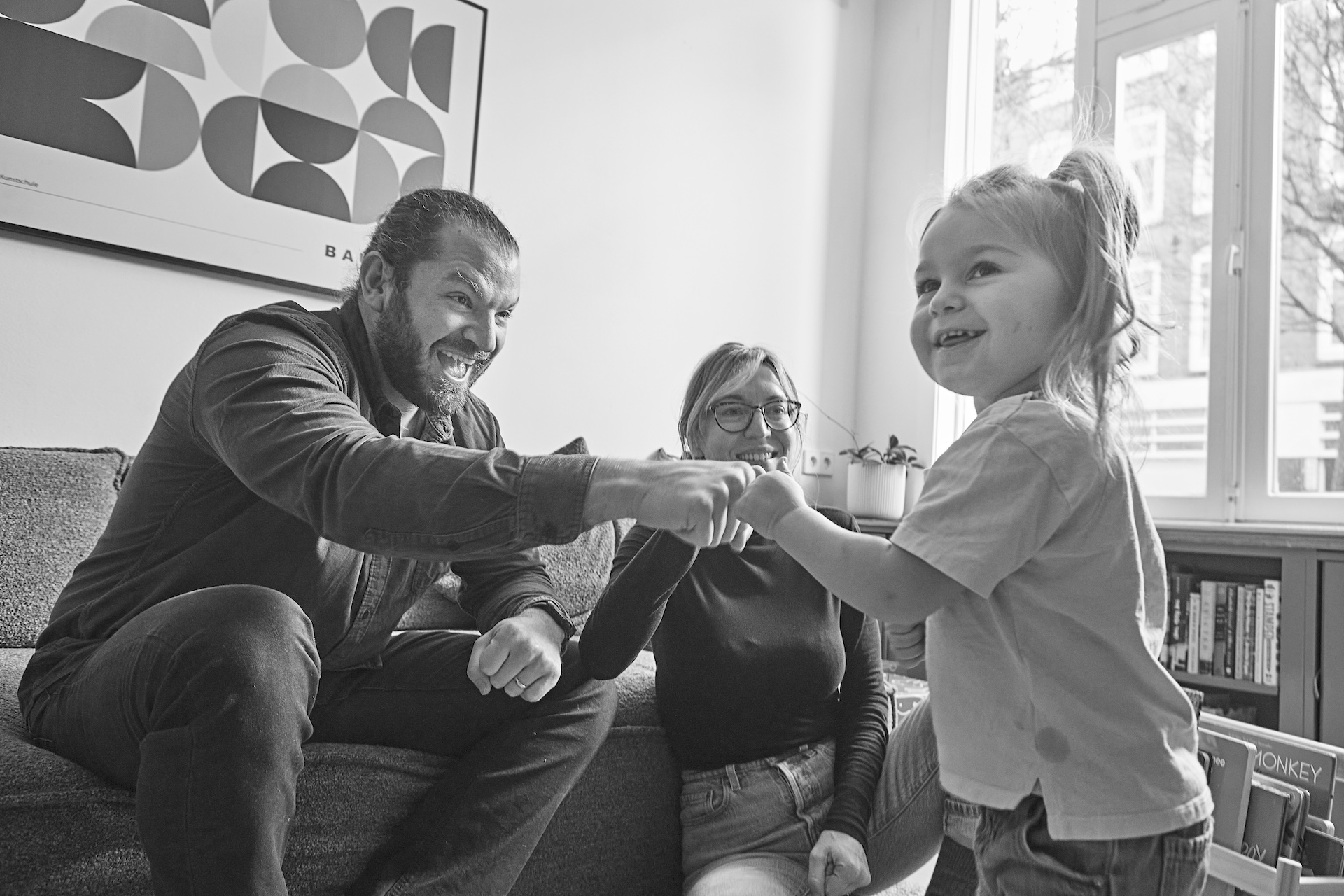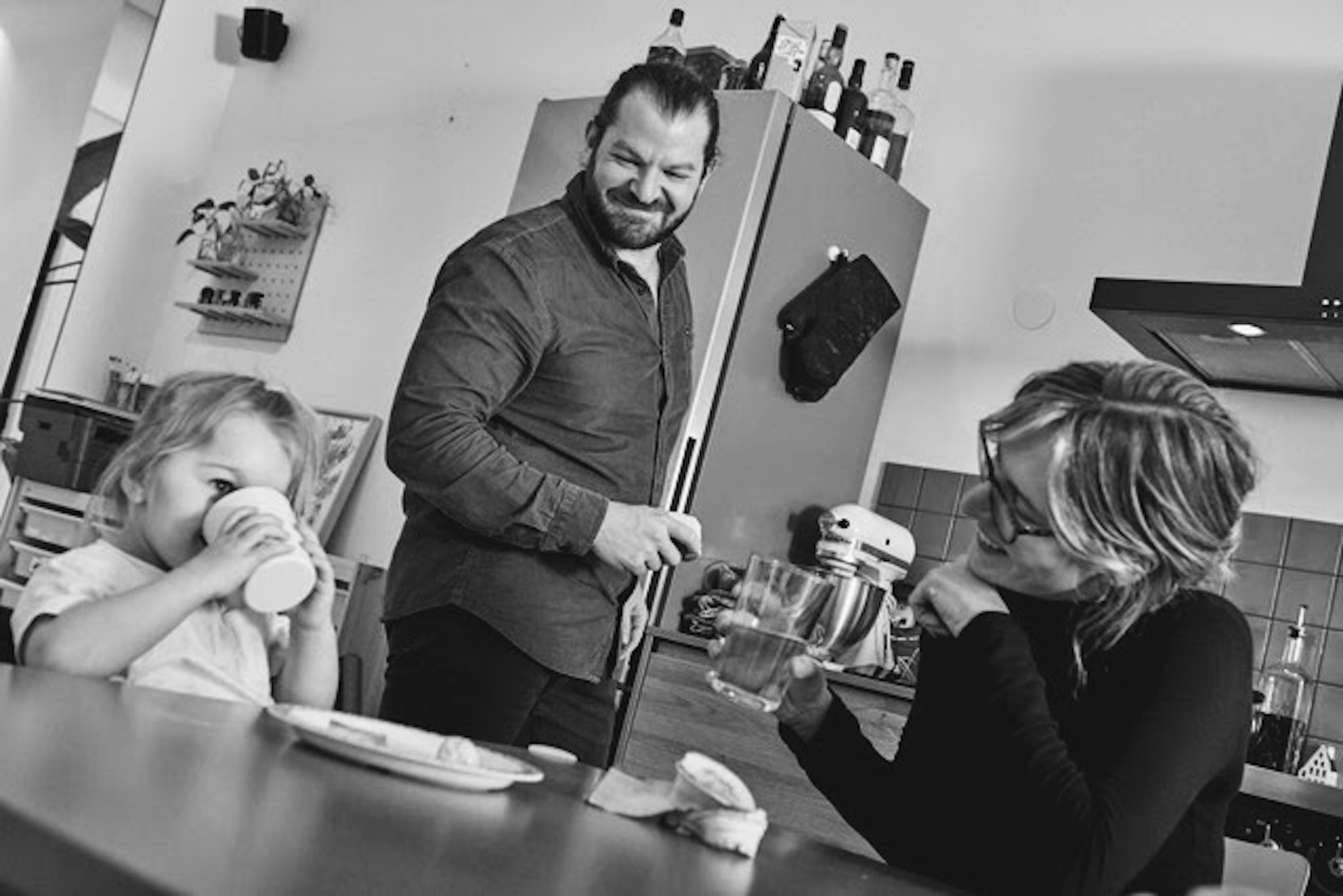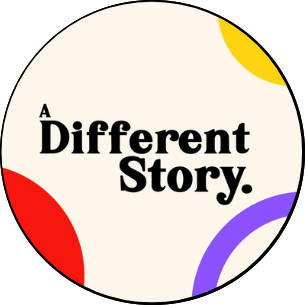Case Story: Olive



‘I just want to look back and know that I did everything I could.’
Olive, 3 years old, was recently diagnosed with ZBTB18, an ultra-rare neurological disease. After years of doubts and questions about her development, her parents now finally have an answer and a diagnosis. Yet whilst they have the answer to one big question, what her condition is called, it’s clear her diagnosis has led to many more unanswerable questions as to what her future will look like.
Her parents, Whitney and Giacomo, originally from the United States and now living in Amsterdam, open up about their journey and perspective on caring for an extraordinary little girl.
‘That first 3 weeks of her life was very touch and go,’ recounts her mom, Whitney. She had great difficulty feeding, wasn’t thriving and was in and out of the hospital. However, then from 3-6 months of age Olive was progressing almost as normal. Then things began to go backwards. Multiple delays started to stack up and at 1 year she still wasn’t crawling. Her mouth was also always open, and she drooled constantly.
As her development staggered, their concerns grew and their long journey in pushing and advocating to get answers and support for her began.
‘She’s a mystery’ is what everyone has always said they remember.
Finally, one doctor they saw recommended genetic testing. They soon had Olive’s exome sequenced, the exome surveys a subset of the entire human genome, which revealed a mutation in the ZBTB18 gene as the cause of her ultra-rare neurological disease.
With only a few hundred known cases in the world and most of them still children, they had very little information as to what this meant for her life or future. However, nearly all patients with this condition present with Intellectual Disability (ID), difficulty speaking and clumsiness or poor muscle tone.
‘When we found out my world crumbled. That day killed me,’ remembers Giacomo with tears in his eyes.
Almost as extraordinary as Olive’s condition is the fact that her father has a prolific career working within the rare disease industry for years now.
‘I deal with this at work every day. And you speak to these people and they are the same as us. They just need to make sure their kid is in the right place. Whether that’s therapy or medicine and they are just focused on that. That’s where you have to be. This is how we survive.’
‘I just want to look back and know that I did everything I could,’ says Whitney.
Whilst they are focused on the practicalities of the therapies and additional support that Olive needs, they also aren’t shying away from celebrating her life and uniqueness, and at such an early stage in her diagnosis.
‘Olive is so much more fun than other kids. She loves books and dancing and heavy metal, and she’s happy!’
‘It might sound like a bad thing that she can’t speak, but it’s not because this is just her. The main goal for all of these children is to communicate and she’s doing that. She can sign!’, her mom beams.
When thinking about her future, their aspirations are humbling and very clear.
‘She waves to a stranger and that is contributing to the world. She is in the world. And that’s all we want for her is to be able to contribute to the world.’
